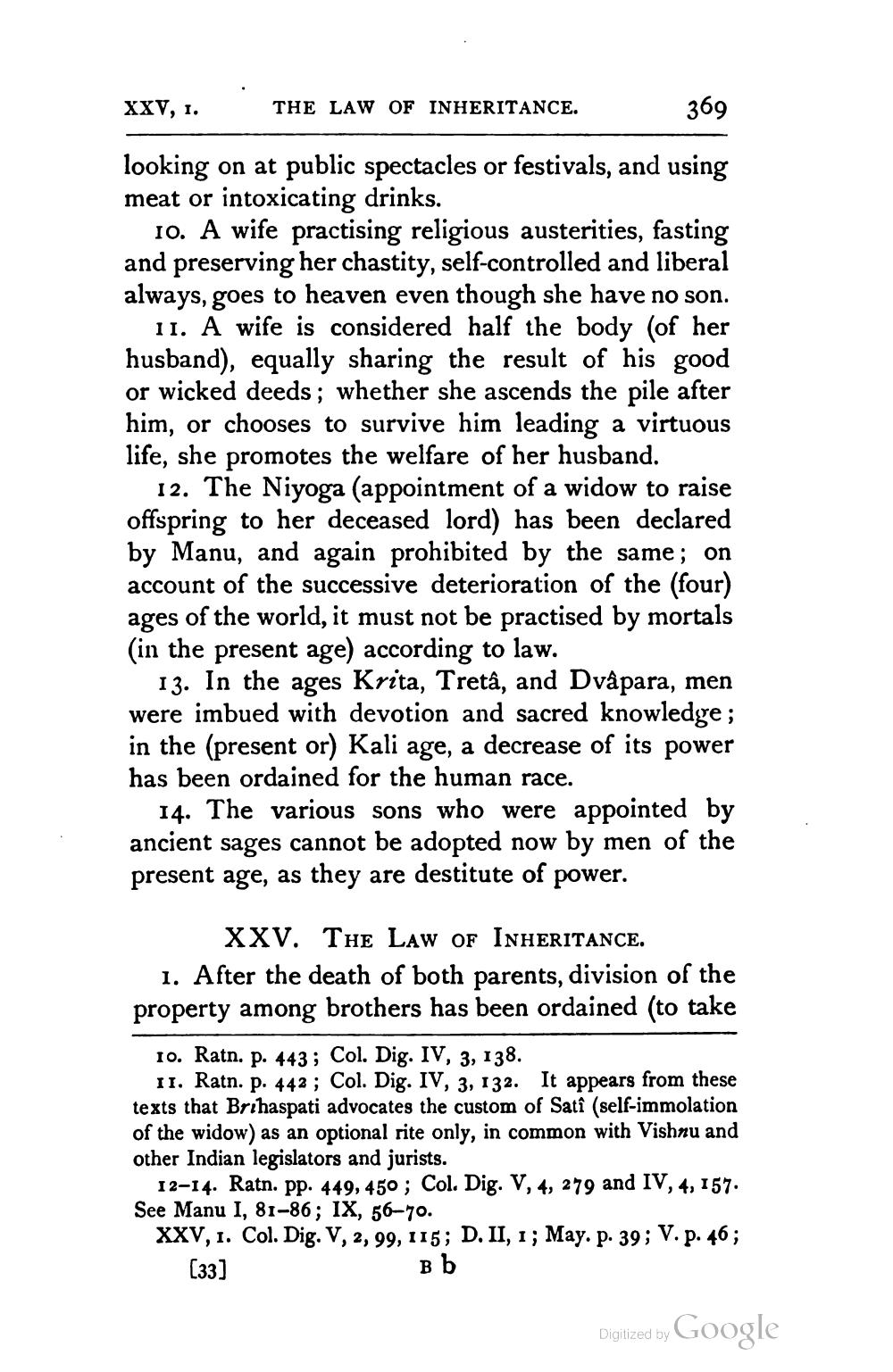________________
XXV, 1.
THE LAW OF INHERITANCE.
1
369
looking on at public spectacles or festivals, and using meat or intoxicating drinks.
10. A wife practising religious austerities, fasting and preserving her chastity, self-controlled and liberal always, goes to heaven even though she have no son.
11. A wife is considered half the body (of her husband), equally sharing the result of his good or wicked deeds; whether she ascends the pile after him, or chooses to survive him leading a virtuous life, she promotes the welfare of her husband.
12. The Niyoga (appointment of a widow to raise offspring to her deceased lord) has been declared by Manu, and again prohibited by the same; on account of the successive deterioration of the (four) ages of the world, it must not be practised by mortals (in the present age) according to law.
13. In the ages Krita, Tretâ, and Dvâpara, men were imbued with devotion and sacred knowledge; in the (present or) Kali age, a decrease of its power has been ordained for the human race.
14. The various sons who were appointed by ancient sages cannot be adopted now by men of the present age, as they are destitute of power.
XXV. THE LAW OF INHERITANCE. 1. After the death of both parents, division of the property among brothers has been ordained (to take
10. Ratn. p. 443 ; Col. Dig. IV, 3, 138.
II. Ratn. p. 442 ; Col. Dig. IV, 3, 132. It appears from these texts that Brihaspati advocates the custom of Satî (self-immolation of the widow) as an optional rite only, in common with Vishnu and other Indian legislators and jurists.
12-14. Ratn. pp. 449, 450 ; Col. Dig. V, 4, 279 and IV, 4, 157. See Manu I, 81–86; IX, 56–70. XXV, 1. Col. Dig. V, 2, 99, 115; D. II, 1 ; May. p. 39; V. p. 46; [33]
Bb
Digitized by Google




